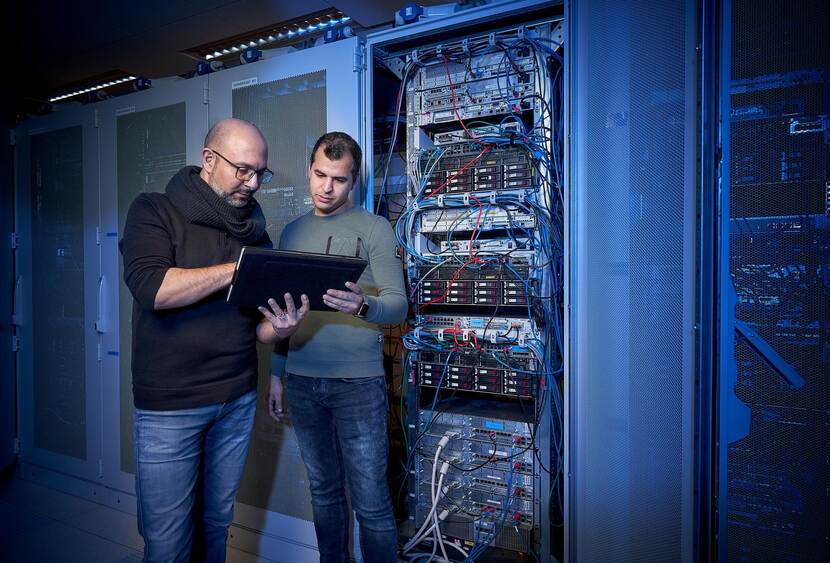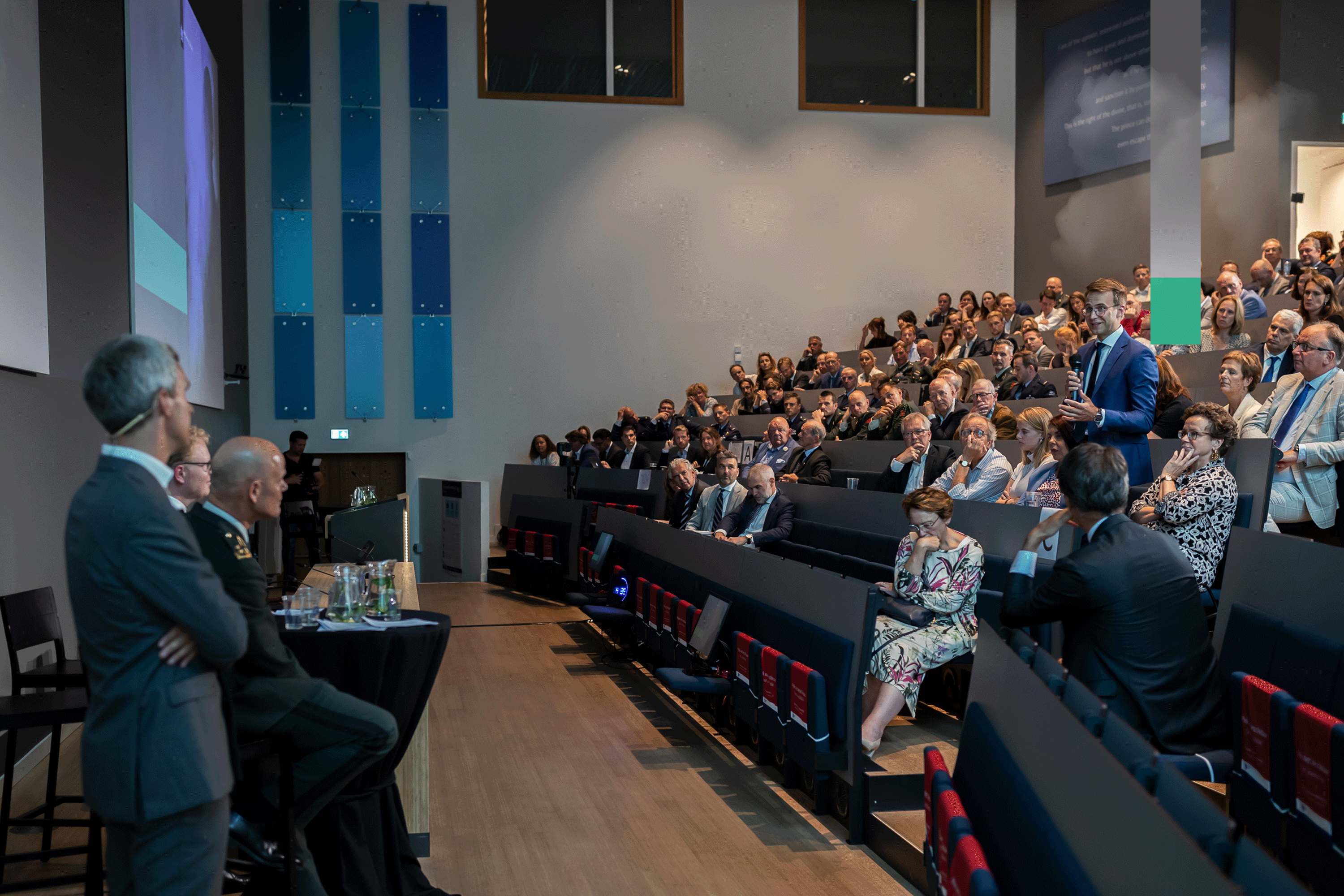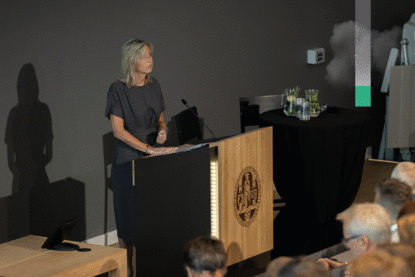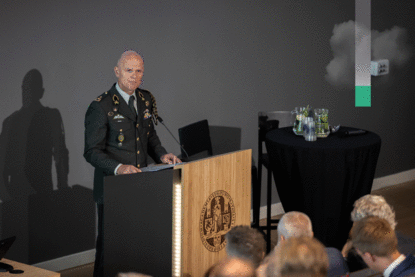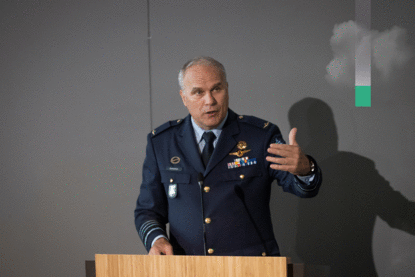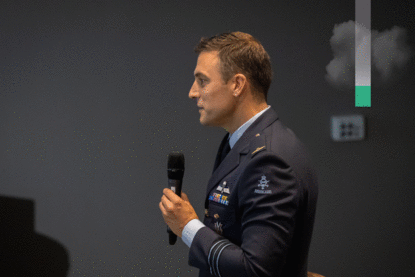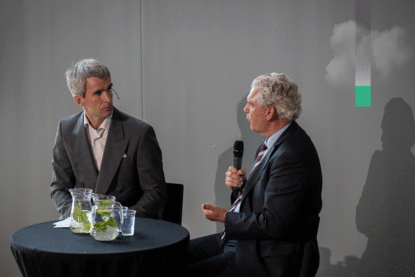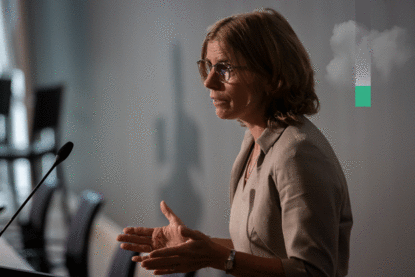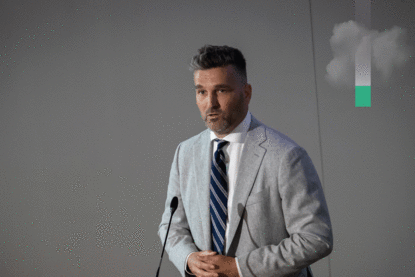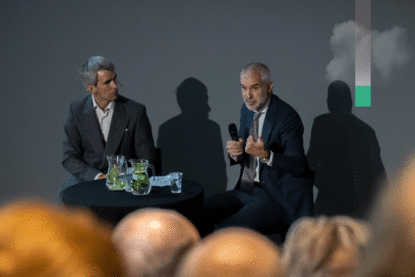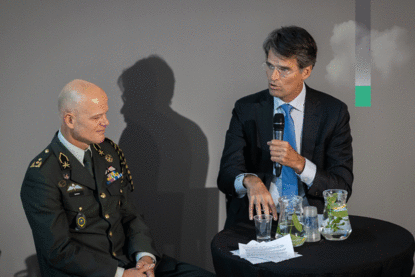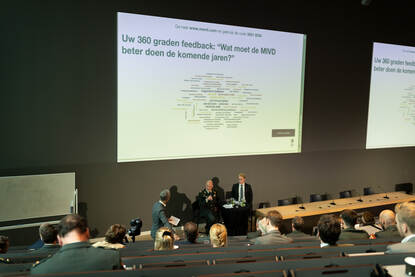Patricia Damen, Bas Rietjes and Roy Lindelauf respond to questions from the public.
To what extent are we protecting our children from influencing, offensive interference by foreign powers, for example via a channel such as TikTok?
Damen: ‘I am aware of the dangers and I make sure my children know what they should and should not believe in the midst of this information fog. I definitely think that the Dutch government has a wider role to play in this respect by alerting people to the large quantities of fake news out there and how our children are being influenced.’
Rietjens: ‘I have children aged 10 and 11 and I have not noticed any attempts by their school to educate them on this matter, which I find concerning. Especially when you see how Sweden and Finland warn children from a very early age and teach them what to do.’
Lindelauf: ‘The question is whether or not this is a task for the intelligence services. The algorithms show that all of these platforms are built with a certain goal in mind, namely to earn money and get people addicted to them. Algorithms are built on this basis. But the question is, can algorithms also be used to provide answers to this problem? A lot of thought is going into this matter and I think that there will be technical solutions, but I also believe that the government has an important task to advise the public on this subject.’
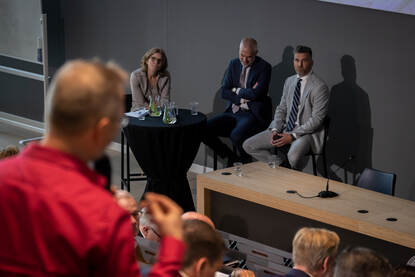
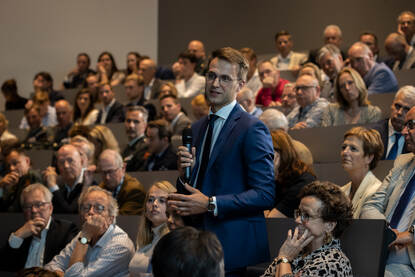
Western intelligence services have investigated the Russian services extensively, but have similar investigations been conducted into the Chinese services?
Rietjens: ‘Yes, reports have certainly been written about the Chinese services. What stands out about their methods is that they are all-encompassing. I myself have investigated the collaboration between the Free University of Amsterdam and Huawei, a company that ultimately channels expertise to China in an extremely sophisticated way. The Chinese intelligence services are uniquely placed to involve all actors in the intelligence process.’
Damen: ‘It is no secret that DISS and GISS conduct investigations into this country. But I cannot disclose the details of these investigations.’
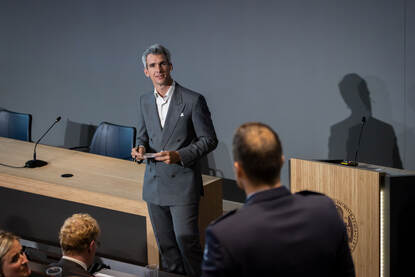
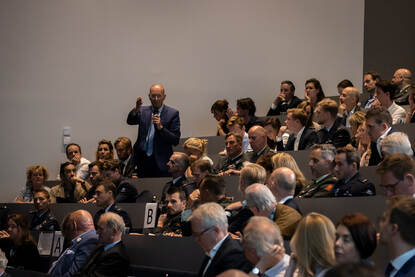
So, if we consider the importance of public-private sector collaboration, how can we fix this in the short term?
Damen: ‘The cyber landscape in the Netherlands is quite fragmented. Many parties are involved in cyber security, safety and awareness and in my opinion we should sit down very soon and discuss ways of bringing things closer together without losing sight of each party’s individual tasks and responsibilities. But there is still only a low level of cyber awareness in the Netherlands and we could gain so much if we all worked to increase this awareness.’
Lindelauf: ‘I think it would be beneficial if we intensified our collaboration with our academic partners and sought out computer science departments inside and outside the Netherlands to see what is happening at the cutting edge of AI and data science. What are they developing, what can we learn from this, and how can we work together in these areas?’
Rietjens: ‘Experimentation is crucial in this respect. Working together, learning from the experience and striving to carry what has been learned onwards into the future. Experimentation is often still regarded as taboo, but one way of dealing with complexity is to take action, experiment, and integrate the lessons learned into your organisation.’
